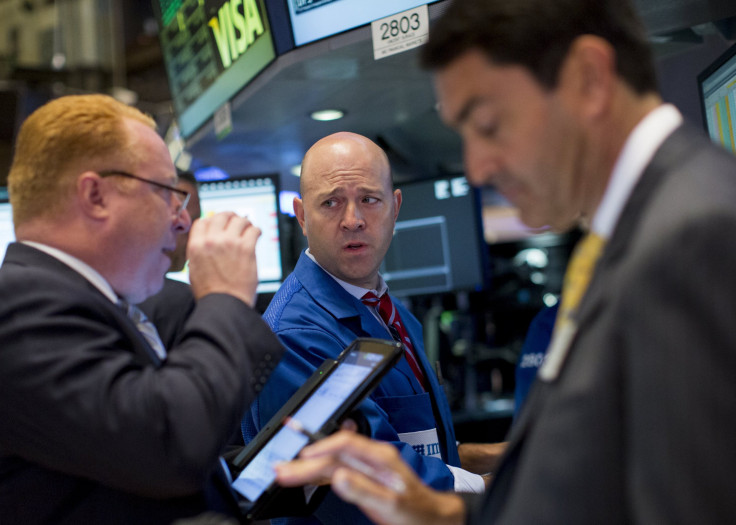Dow Jones Industrial Average Drops Amid Looming Federal Reserve Meeting

This story was updated at 12 p.m. EDT
U.S. stocks fluctuated Friday after global shares traded mixed amid uncertainty surrounding whether the Federal Reserve will announce an interest rate hike next week for the first time in nearly a decade. The Dow Jones Industrial Average fell as much as 86 points following the opening bell, only to turn mildly higher in midday trading.
The Dow Jones Industrial Average (INDEXDJX:.DJI) rose 21 points, or 0.13 percent, to 16,351. However, the Standard & Poor's 500 index (INDEXSP:.INX) edged down 2.11 points, or 0.12 percent, to 1,950. The Nasdaq composite (INDEXNASDAQ:.IXIC) lost 8 points, or 0.16 percent, to 4,788.
Dow component McDonald's Corporation (NYSE:MCD) led the index higher, adding 1.4 percent, while Cisco Systems Inc. (NASDAQ:CSCO) was the biggest laggard, shedding more than 1 percent.
Seven of the 10 S&P 500 sectors traded lower, led by a 2 percent declines in energy stocks after U.S. oil prices slid below $45 a barrel.
Crude fell more than 3 percent Friday after Goldman Sachs cut its price outlook for next year, citing oversupply and concerns over China's economy. The firm lowered its 2016 forecast for U.S. crude to $45 a barrel from $57 previously, and Brent crude, the global benchmark for oil prices, to $49.50 down $62.
Following the report, West Texas Intermediate crude, the benchmark for U.S. oil prices, traded 3.5 percent lower to $44.32 per barrel for October delivery on the New York Mercantile Exchange. On the London ICE Futures Exchange, Brent crude lost 3.2 percent to $47.31.
U.S. producer prices were flat in August, and with inflation well below the Fed’s 2 percent target could fuel more debate as to why the Federal Open Market Committee may hold off on raising the federal funds rate when the central bank meets next week.
The producer price index (PPI) for total final demand was flat in August, after increasing in each of the three previous months. Final demand goods prices fell 0.6 percent in August, including a 3.3 percent drop in energy goods as oil prices again moved lower after stabilizing for a few months, the Labor Department said Friday. The consensus among analysts was for a 0.1 percent decline, according to analysts polled by Thomson Reuters.
Concerns about slower global growth, especially in China, and the strong dollar pushed down energy prices again in August, although they have increased somewhat over the past few weeks.
“Given that U.S. equity markets have stabilized after the turmoil a couple of weeks ago and other economic data have been solid, a 25 basis-point increase in the federal funds rate on September 17 is slightly more likely than not,” Stuart Hoffman, chief economist at PNC Financial Services Group, said in a research note Friday.
Asian shares finished mostly lower Friday, with Japan’s Nikkei index closing down 0.19 percent during choppy trade. Meanwhile, China’s benchmark Shanghai Composite index closed flat, up just 0.08 percent.
European stocks traded lower following Asia’s weak lead, sending Germany's DAX and France's CAC down 0.7 percent and 0.8 percent, respectively.
All three major averages closed mildly higher Thursday after wavering during most of the trading session, with the Dow Jones Industrial Average leaping as much as 189 points, only to pare gains and close up 77 points above the previous day's close.
© Copyright IBTimes 2024. All rights reserved.






















